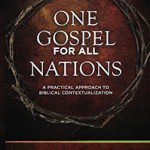People often overlook a key feature of honor-same societies. Honor-shame cultures are inherently collectivistic in orientation. Have you ever thought about how people lead others in a collectivistic context? Over at Inside Story, you’ll find an excerpt from a recent book by Kerry Brown called The New Emperors: Power and the Princelings in China. What I found interesting is how he describes the way one must demonstrate leadership within a collectivist society like China. The final lines of the excerpt... Read more

















